Main For All Intents and Purposes Takeaways:
- “For all intents and purposes” is an idiomatic expression which means in effect or in every practical way.
- Intensive purpose is an eggcorn for the correct phrase intents and purposes.
- Use “for all intents and purposes” when you want to express that one thing has basically the same result or effect as another.
- Eggcorn occurs when you mistakenly replace words or phrases with similar-sounding terms without changing their meaning
For all intents and purposes, this quick guide will show you exactly how to use the correct idiom in a sentence, so you can look good in front of any audience.


What Does “For All Intents and Purposes” Mean?
“For all intents and purposes” is an idiomatic expression which means in effect or in every practical way. It implies that one thing may not be the same as another thing but it may lead to the same result or effect.
Some mistake “for all intents and purposes” for the incorrect phrase “for all intensive purposes” because the two sound almost identical when spoken aloud. However, this error is a great example of an eggcorn which occurs when we mistakenly replace words or phrases with similar-sounding terms without changing their meaning. As a rule of thumb, you may use “for all intents and purposes” the same way you would use “at the end of the day.”
What is an Intensive Purpose?
On one hand, the adjective “intensive” means concentrated, vigorous, or thorough. On the other hand, the noun “purpose” refers to the reason for doing something or the will to accomplish an aspiration. Therefore, an intensive purpose might be a concentrated aspiration. However, this is usually an erroneous phrase that doesn’t make much sense. In fact, it’s an eggcorn for the correct phrase “intents and purposes.”
Therefore, “for all intensive purposes” is an eggcorn — a mistake that results from someone mishearing words or phrases and creating brand-new soundalikes (e.g., the incorrect eggcorn for the correct acorn).
[Example]
- Expatriates deteriorate into ex-patriots.
- Polite diners swap silverware for civilware.
- Important cases skip the Supreme Court and end up at the Extreme Court. [/example]
From a literal standpoint, “for all intensive purposes” means “for all thorough aspirations.” That doesn’t make much sense.
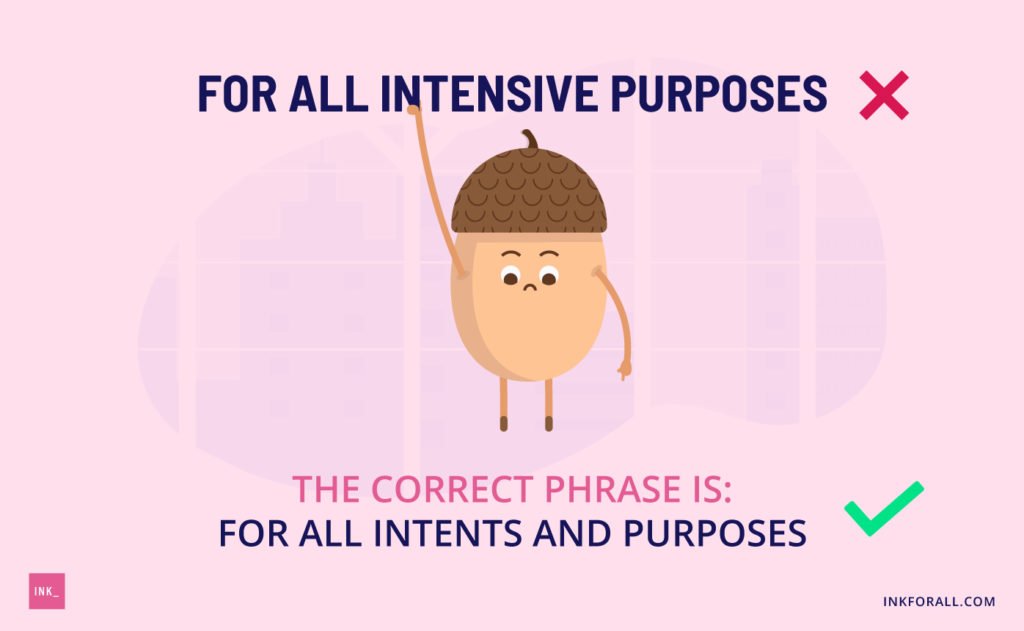

How Do You Use All Intents and Purposes?
Use “for all intents and purposes” when you want to express that one thing has basically the same result or effect as another. This means you can use this idiom in the same way that you might use the word “essentially,” or the phrase “in effect.” More informal alternatives are “pretty much” and “at the end of the day.” Finally, you can use this phrase at the beginning of a sentence or in the middle, directly after the verb (His absence from the meeting was, for all intents and purposes, an act of protest).
Here are examples of how to use for all intents and purposes in a sentence:
Common usage opted to drop the word “constructions,” and the British English variant “to all intents and purposes” survives to this day. Conversely, American English speakers prefer the idiom with the preposition “for.”
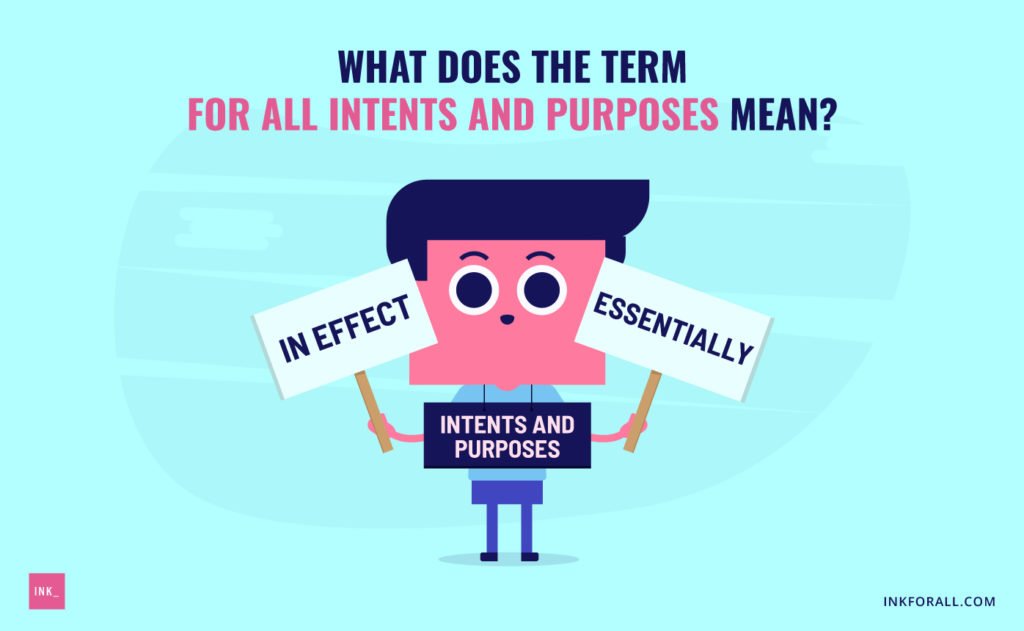

Is Purpose the Same as Intent?
Both words are nouns, but intent does not mean the same as purpose. While intention describes the way you plan to achieve a goal, purpose is the goal or the achievement itself. In other words, intention wants to do something, while purpose actually does it. Additionally, synonyms for purpose include ambition, direction, goal, objective, and scheme. Conversely, other words for intent include determination, resolution, and preoccupation.
Take This Quick Quiz About For All Intents and Purposes
For all Intents and Purposes Question #1


The answer is B. “For all intensive purposes “ is an eggcorn — a mistake that results from someone mishearing words.
All Intents and Purposes Question #2
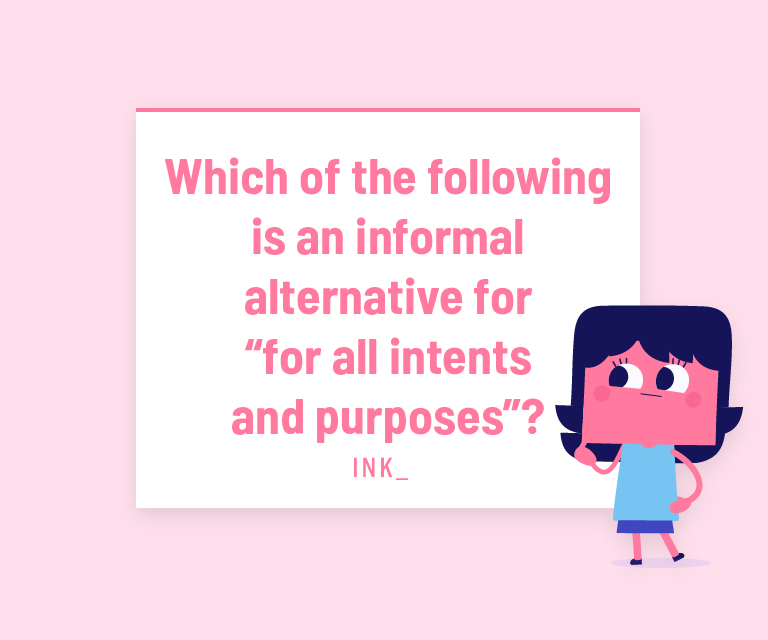

The answer is C. Either of these phrases are informal alternatives you can use for “for all intents and purposes”.
Intents and Purposes Question #3
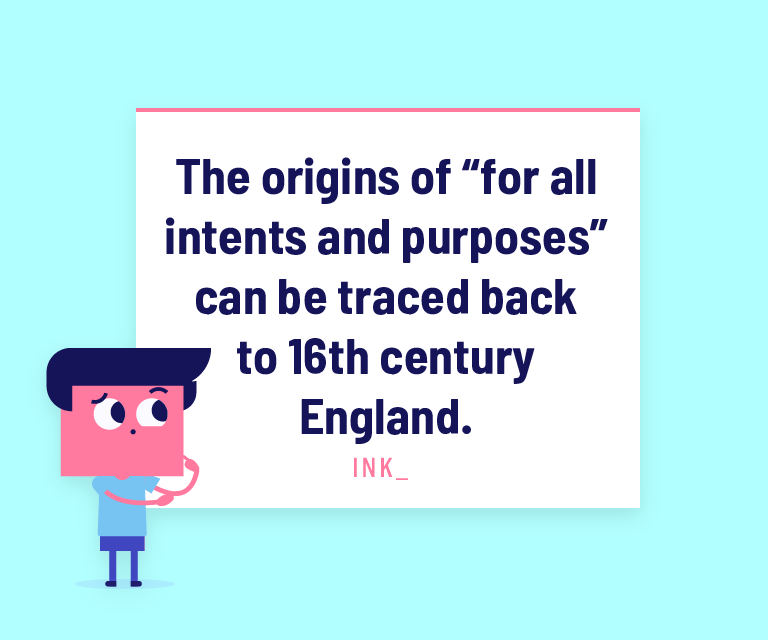

The answer is TRUE. A similar phrase — “to all intents, constructions, and purposes” — appeared in a 1546 Act of Parliament.
All Intents and Purposes Question #4
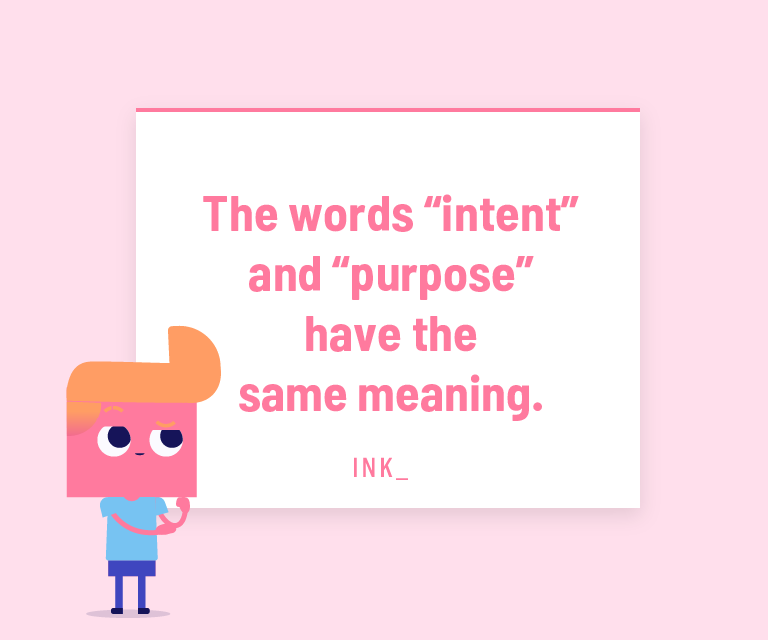

The answer is FALSE. Intention describes the way you plan to achieve a goal. On the other hand, "purpose" is the goal or achievement.
For all Intents and Purposes Question #5
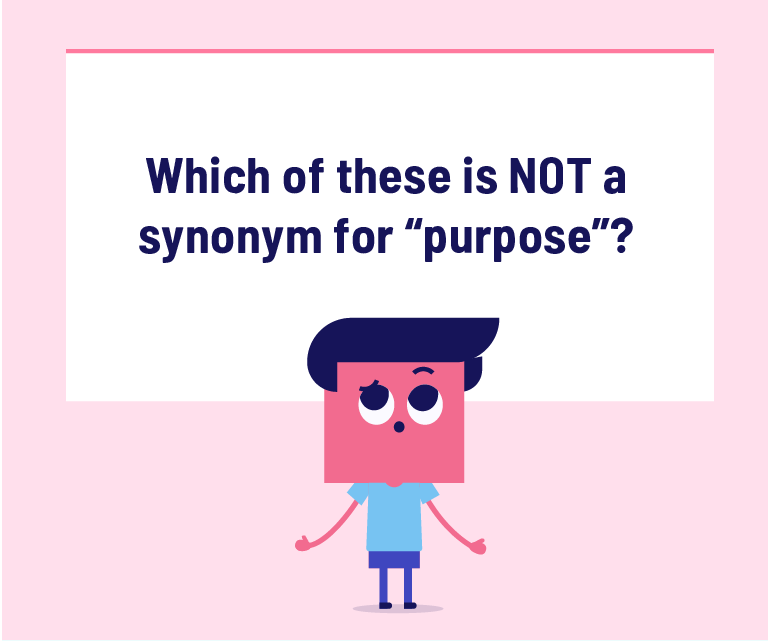

The answer is B. “Resolution” is another word for “intent.”






